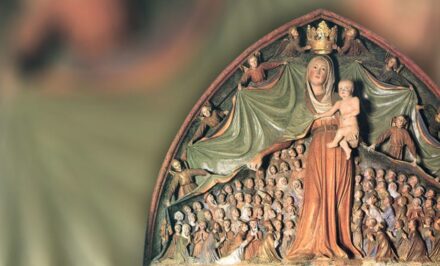Carlos E Barrio and Lipperheide, Lawyer- Coach, Argentina •
Rejoice is the first word God directs to mankind in the Gospel.[1] It is the first word he wants to give us. He knows us and knows how much we need to feel welcomed, loved, and need to find meaning to our lives and work.
But it seems that we have largely lost the joy. We experience work as a meaningless activity, often feeling depressed and emptied of life meaning.
The painful side of work dominates the contemporary productive process, emptied of its creative joy, to the point that we feel as if we are outsiders, alienated from what we produce, and separated from the work of our hands.
Josef Pieper tells us that “meaningful work, of course, signifies something more than the naked act of effort and daily activities.” He refers to the understanding and “acceptance” of work as it is in reality: like “cultivating the fields,” which is both happiness and tiredness, satisfaction and the sweat of our brows, joy and using of vital energy. If one of these things is missing and the reality of work is falsified, it is impossible for it to be a festival.[2]
It seems that the world of business has also lost the spirit of the joy of producing goods and services, prioritizing economic feasibility as its the determining factor. We have forgotten the meaning of the vocation of creating wealth for the good of the self and the community, the search for creativity and the joy of the collective process of generating goods and services.
We need to discover which objectives converge and are complementary with a model of work in which the person is in contact with his work and the joy of involvement and a company that develops its activity with enthusiasm and passion.
Fr. Kentenich pointed out that “today, production increases but the person is increasingly depersonalized….because he never has a connection with the work of his hands. Creative forces that lie dormant are not awakened; work does not produce any joy; it never becomes a true, authentic vocation…”[3]
How, then are we to release the creative forces of the individual and the company and restore joy?
The answer is to build a natural relationship within the person and between the individual and his work, such that we have to once again place the person at the centre of the activity and not as just another cost of production. We need to avoid reducing him to a thing, “de-proletarianize the spirit of those who work.”[i].
This reminds us of Anselm Grün that we “cannot tend directly towards joy. All we can do is try to live intensely and creatively. Thus joy will appear spontaneously as an expression of vitality and creativity.”[4]
The journey towards joy is, therefore, the journey towards discovering the value of work, its reason, the meaning of producing goods and services and sharing them.
Work with meaning allows us to feel joyful, not only in the task but also in the producing it together with others, in other words, in having achieved productive solidarity, generating wealth for the company and community.
What a great vocation companies have, as society’s motors of production, to create wealth, in a world where we see the deprivation of so many people who are submersed in poverty.
Creating wealth is to generate life, encourage creativity, to create a wealth that multiplies, spreads and shares.
Only by emphasising the moral value that producing wealth has, can we restore joy and overcome the scourge of poverty.
For a Christian, what Enrique Shaw says is pleasingly refreshing [5] when he compares the company’ progress with the Eucharist. He highlighted that the “Eucharistic transformation is typical of all progress, it is the greatest transformation possible, it is a permanent invitation for all true progress…that makes us think that the company should also be an instrument of progress, of human and supernatural perfection. In other words, it should be analogically sacramentizable.[6]
What a noble proposal he makes! Let us transform and multiply our goods and services, doing so with joy and enthusiasm, for the growth of the person and the company for the common good.
Only then,can we celebrate the festival of life with joy.

[1] “Rejoice, full of grace”, Luke 1:26
[2] Josef Pieper. “A theory of festivity”. Editorial Rialp. (1974), p. 13).
[3] Joseph Kentenich. “El Pensamiento Social del P. José Kentenich.” Editorial Nueva Patris (2010), p. 104
[4] Anselm Grün. “Recuperar la propia alegría”. Editorial Verbo Divino (1999), p. 13
[5] Enrique Shaw, born in Paris on26 February 1921 and died in Buenos Aires on 27 August 1962. He was a lay man and Argentinian businessman As a result of his exemplary life the Church allowed the process for his canonization to begin, and since 2001 he has been seen as a Servant of God. He promoted and drove the human development of his workers and, inspired by the Social Doctrine of Church, founded the Christian Association for Business Leaders (ACDE), an entity that is part of the International Union of Entrepreneurs(UNIAPAC), and wrote numerous books, pamphlets and conferences.
[6] Enrique Shaw. “Y dominad la tierra”. Editorial ACDE (2010), p.69.
[i] Joseph Kentenich pointed out this concept at the conference he gave on 13 June1930 (See “Desafio Social.” Editorial Schoenstatt (1996), p. 326 and ss.). In this way, personalised relationships can be established that do not consider or treat the individual as merchandise. He tells us that the path to develop humanity in companies is to form personal and work relationships in the spirit of family.” For him, the family is the face of God in the world.
Original: Spanish. Translation: Sarah-Leah Pimentel, Cape Town, South Africa














